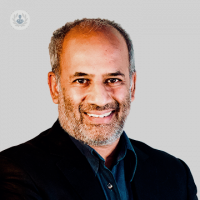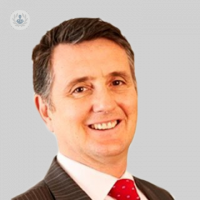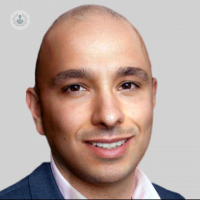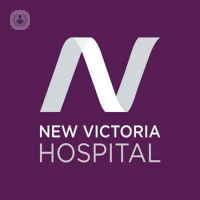What is sports surgery?
When a person sustains an injury during exercise, sports participation or any type of physical activity, depending on the severity of the injury, they may be advised by a sports medicine specialist to see an orthopaedic surgeon for sports surgery. Surgery is normally the last resort for amateur sportsmen and is more common amongst professional athletes. Sports surgery is likely if a person has sustained a serious injury or as a result of persistent symptoms that were not successful following the use of other treatments prior to the operation.

What are the common sports injuries treated?
Sports surgery can repair damaged soft tissue, realign bones and joints. However, not all injuries require surgery. A sports medicine doctor may treat the following injuries sustained through physical activity:
- Sprained ankles
- Hip bursitis
- Fractures
- Knee and shoulder injuries
- Tendonitis
- Low back pain
- Pulled muscles
- Concussion
- Cartilage injuries
The most common sports injuries are strains and sprains, which is when the ligaments have been stretched past their limits and have resulted in a tear.
What are the different types of surgical procedures in sports surgery?
Many sports injuries are treated using keyhole surgery. This involves the surgeon making a small incision and using a tiny camera to guide them during the procedure. This type of surgery is most common with knee injuries and is known as arthroscopy.
How can sports injuries be prevented to avoid sports surgery?
Even though it is recommended to exercise regularly as an important part of maintaining overall health, precautions should be taken to minimise the risk of injuries. Sports injuries occur from overtraining, lack of conditioning and poor technique. The following tips can be used as a preventative for sports injuries:
- Use the correct equipment
- Always warm-up before
- Wear the right protective gear
- Rest in between workouts to allow the body time to rest and repair
- Start exercising slowly and gradually increase strength, flexibility and endurance
- Listen to the body if it shows any signs of pain or distress
What happens after a sports surgery procedure?
Recovery from an operation for a sports injury depends on the severity and the individual case. Most injuries require a long rest period following surgery on an affected joint, muscle or soft tissue. Physiotherapy is used to rebuild strength and to increase the range of movement around the joint or muscle. It will also help to condition the injury to make it more resistant to any future complications.
09-23-2013 07-25-2023Sports surgery
Mr Pramod Achan - Orthopaedic surgery
Created on: 09-23-2013
Updated on: 07-25-2023
Edited by: Karolyn Judge
What is sports surgery?
When a person sustains an injury during exercise, sports participation or any type of physical activity, depending on the severity of the injury, they may be advised by a sports medicine specialist to see an orthopaedic surgeon for sports surgery. Surgery is normally the last resort for amateur sportsmen and is more common amongst professional athletes. Sports surgery is likely if a person has sustained a serious injury or as a result of persistent symptoms that were not successful following the use of other treatments prior to the operation.

What are the common sports injuries treated?
Sports surgery can repair damaged soft tissue, realign bones and joints. However, not all injuries require surgery. A sports medicine doctor may treat the following injuries sustained through physical activity:
- Sprained ankles
- Hip bursitis
- Fractures
- Knee and shoulder injuries
- Tendonitis
- Low back pain
- Pulled muscles
- Concussion
- Cartilage injuries
The most common sports injuries are strains and sprains, which is when the ligaments have been stretched past their limits and have resulted in a tear.
What are the different types of surgical procedures in sports surgery?
Many sports injuries are treated using keyhole surgery. This involves the surgeon making a small incision and using a tiny camera to guide them during the procedure. This type of surgery is most common with knee injuries and is known as arthroscopy.
How can sports injuries be prevented to avoid sports surgery?
Even though it is recommended to exercise regularly as an important part of maintaining overall health, precautions should be taken to minimise the risk of injuries. Sports injuries occur from overtraining, lack of conditioning and poor technique. The following tips can be used as a preventative for sports injuries:
- Use the correct equipment
- Always warm-up before
- Wear the right protective gear
- Rest in between workouts to allow the body time to rest and repair
- Start exercising slowly and gradually increase strength, flexibility and endurance
- Listen to the body if it shows any signs of pain or distress
What happens after a sports surgery procedure?
Recovery from an operation for a sports injury depends on the severity and the individual case. Most injuries require a long rest period following surgery on an affected joint, muscle or soft tissue. Physiotherapy is used to rebuild strength and to increase the range of movement around the joint or muscle. It will also help to condition the injury to make it more resistant to any future complications.
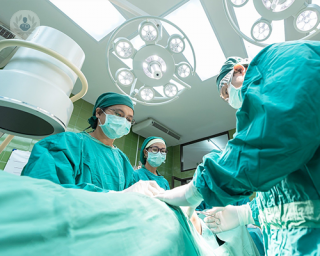

All you need to know about surgery for sports injuries
By Mr Neil Jain
2024-11-20
Orthopaedic specialist Mr Neil Jain explains the types of surgery for sport-related injuries and the non-surgical alternatives to help you understand your options. See more


Can playing sport lead to knee osteoarthritis?
By Mr Jehangir Mahaluxmivala
2024-11-19
What is the relationship between sport and knee osteoarthritis? Can playing certain sports lead to knee osteoarthritis? Here to answer these questions and more is highly experienced and skilled consultant orthopaedic and trauma surgeon, Mr Jehangir Mahaluxmivala. See more


Sports injury management: quick fire questions
By Mr Muhammad Adeel Akhtar
2024-11-17
Many of us engage in sports, not just for exercise but as a way of connecting with others and improving ourselves both physically and mentally. However, participating in sports can result in some injuries, which must be properly managed to prevent worsening. Renowned consultant orthopaedic surgeon Mr Muhammad Adeel Akhtar provides an overview of how to manage sports-related injuries. See more


How can bone injuries in sport be prevented?
By Professor Kuntal Patel
2024-11-17
On hand to explain the importance of bone strength for performing sports athletes in our latest article here is revered consultant orthopaedic surgeon, Professor Kuntal Patel. See more
Experts in Sports surgery
-
Mr Steven Corbett
Orthopaedic surgeryExpert in:
- Sports traumatology
- Sports surgery
- Sports injuries
- Shoulder surgery
- Elbow Pain
- Elbow arthroscopy
-
Mr Pramod Achan
Orthopaedic surgeryExpert in:
- Hip
- Hip prosthesis
- Hip arthroscopy
- Sports surgery
- Hip replacement
- Knee arthroscopy
-
Mr Neil Jain
Orthopaedic surgeryExpert in:
- Knee
- Shoulder
- Sports injuries
- Tendon injuries
- Joint preservation surgery
- Sports surgery
-
Dr Richard Sylvester
Sports medicineExpert in:
- Sports traumatology
- Whiplash
- Sports injuries
- Sports physical examination
- Ultrasound
- Sports surgery
-
Mr Charles Gibbons
Orthopaedic surgeryExpert in:
- Hip
- Knee
- Sports surgery
- Knee replacement
- Hip replacement
- Partial knee replacement
- See all

New Victoria Hospital
New Victoria Hospital
184 Coombe Lane West, Kingston upon Thames, KT2 7EG
No existe teléfono en el centro.
By using the telephone number provided by TOP DOCTORS, you automatically agree to let us use your phone number for statistical and commercial purposes. For further information, read our Privacy Policy
Top Doctors

The Wilmslow Hospital - part of HCA Healthcare
The Wilmslow Hospital - part of HCA Healthcare
52-54 Alderley Road, Wilmslow, Cheshire, SK9 1NY
No existe teléfono en el centro.
By using the telephone number provided by TOP DOCTORS, you automatically agree to let us use your phone number for statistical and commercial purposes. For further information, read our Privacy Policy
Top Doctors

The Outpatients and Diagnostic Centre at 30 Devonshire Street (HCA)
The Outpatients and Diagnostic Centre at 30 Devonshire Street (HCA)
30 Devonshire St, London W1G 6PU
No existe teléfono en el centro.
By using the telephone number provided by TOP DOCTORS, you automatically agree to let us use your phone number for statistical and commercial purposes. For further information, read our Privacy Policy
Top Doctors
-
New Victoria Hospital
184 Coombe Lane West, Kingston upon Thames, KT2 7EG, South LondonExpert in:
- Cardiology
- General Surgery
- Orthopaedic surgery
- Breast augmentation
- Pain management
- Spine
-
The Wilmslow Hospital - part of HCA Healthcare
52-54 Alderley Road, Wilmslow, Cheshire, SK9 1NY, WilmslowExpert in:
- Breast Cancer
- Men's health check
- Orthopaedic surgery
- Obstetrics and Gynaecology
- Women’s health
- Sports Medicine
-
The Outpatients and Diagnostic Centre at 30 Devonshire Street (HCA)
30 Devonshire St, London W1G 6PU, Central LondonExpert in:
- Orthopaedic surgery
- Orthopaedic spinal surgery
- Musculoskeletal pain
- Musculoskeletal ultrasound
- Spinal stenosis
- Spinal injections
- Most viewed diseases, medical tests, and treatments
- Joint pain
- Lumbar herniated disc
- Spinal surgery
- Minimal access surgery (keyhole surgery)
- Shoulder pain
- Osteoporosis
- Botulinum toxin (Botox™)
- Abnormal gait
- Shoulder osteoarthritis
- DEXA scan
